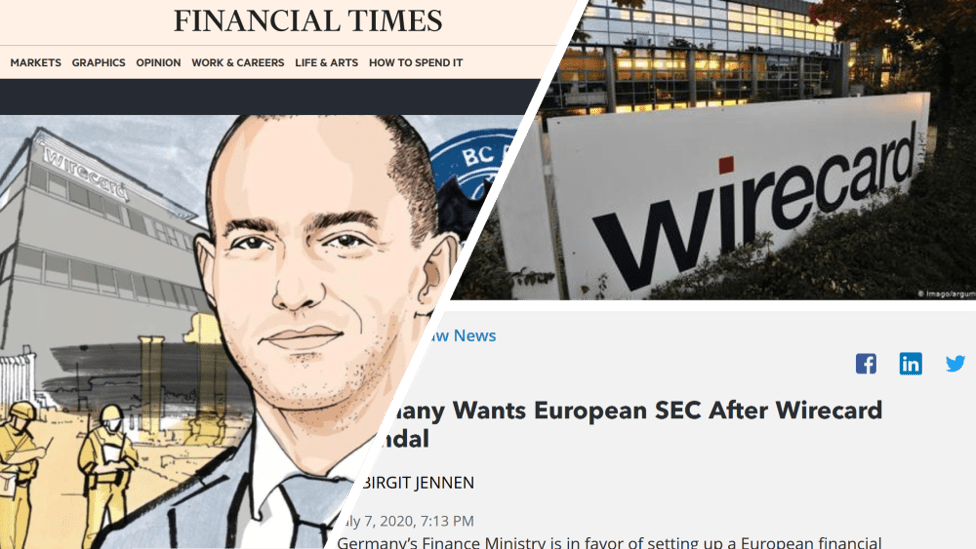Suddenly everyone is wondering. Suddenly, information about Wirecard‘s strange business practices appears everywhere. The involvement of the DAX-listed Wirecard as a payment processor in high-risk businesses such as porn, gambling, or online trading but also the support of illegal and fraudulent transactions such as binary options or marijuana trading are suddenly accepted reality. But all this was not really that surprising. The Financial Times has been putting respective facts on the table for years. These have been just as stubbornly denied by the German public prosecutor’s office as by the German financial market supervisory authority BaFin. These authorities are to be blamed for the Wirecard disaster.
The focus of reporting is currently on the former Wirecard director and COO, the Austrian Jan Marsalek. Most recently, the Financial Times published a detailed portrait of Marsalek, explaining his closeness to the Russian secret service. In particular, Marsalek is said to have connections to the GRU, the Russian military intelligence directorate. Marsalek is said to have lived in a villa in Munich opposite the Russian consulate. He is said to have had interests in the Middle East and Libya through the Russian secret service. How much of this is true is still uncertain. What is certain, however, is the proximity of Marsalek to various intelligence agencies.
The proximity to the Russian secret service would at least explain why Wirecard has held on so long and remained untouched, even protected, by the German authorities despite critical journalists and fact-based reports. On the contrary, the German public prosecutor’s office as well as the BaFin actively took action against Wirecard‘s critics and prosecuted them.
It would also explain why Wirecard was able to acquire and process such high payment transaction volumes from the dark side of the universe. On the other hand, Wirecard would have been a stroke of luck for the Russians. They would have had access to the international financial system and, through the company’s directors, control over a reputable DAX company. And they may have protected their asset. The Russians for sure have access to a highly efficient system of online trolls and social media terrorists who defended Wirecard against critics accordingly. It is a trivial matter for the Russian secret service to implement influencers into the various online forums and set up the Wirecard fanboy groups there.
In the Wirecard case, the German authorities have in any case demonstrated their inability or unwillingness to do their job. In this respect, it is hardly surprising that voices are now being raised in Germany and the EU calling for an EU regulatory authority modeled on the US SEC. In any case, Germany has mercilessly destroyed its reputation in law enforcement and financial regulation. With the well-known German thoroughness. For this, the responsible people should be prosecuted too.
